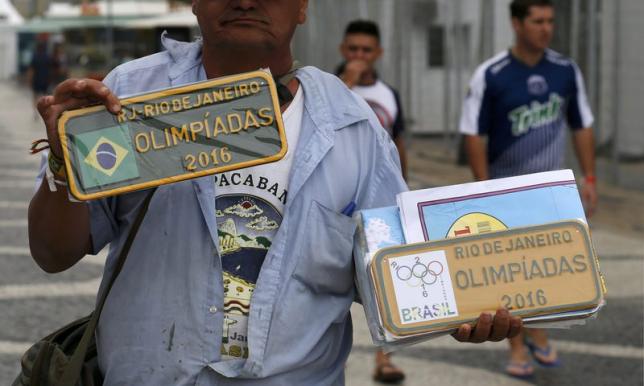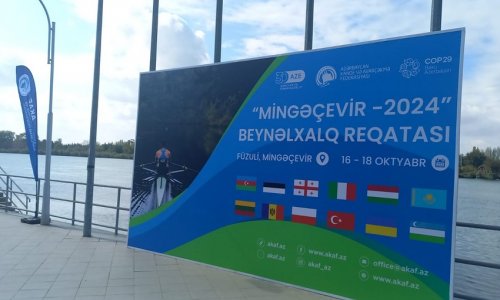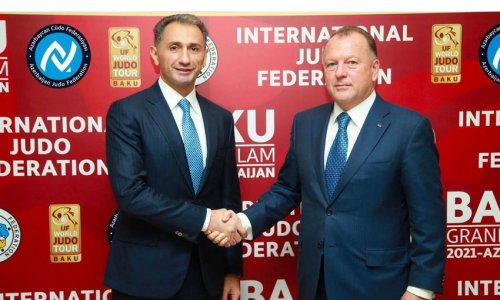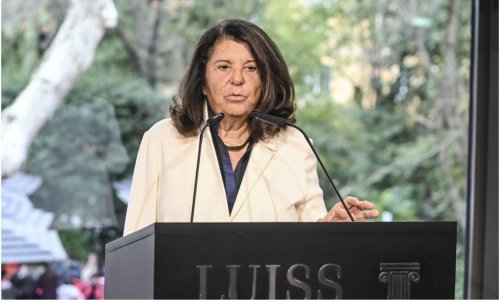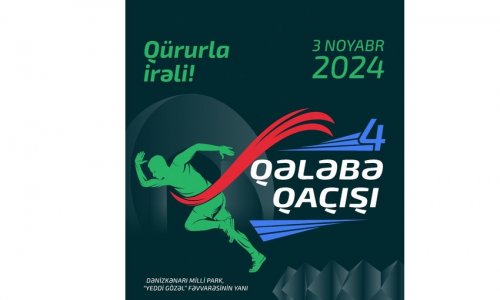Want an Olympic license plate, or a hand-embroidered Olympic handkerchief?
How about Olympic cocaine?
These and other products are among those being seized by Brazilian police in a crackdown on less-than-approved use of the five rings, mascots and other Olympic symbols ahead of the Games, which start in Rio de Janeiro on Friday.
In a country where pirate versions of just about any product are as common as tropical fruit, Olympic organizers are battling a tide of bootleg goods sold and produced by those seeking to profit from the hype around the first-ever Games held in South America.
"These are opportunists," says Valeria Aragão, a police inspector in charge of a 20-member counterfeit squad that in recent weeks has conducted raids across the city, confiscating all manner of ersatz Olympic goods.
During one recent sting, she caught an elderly merchant, who had just embroidered "Olympics 2016" on a series of handkerchiefs, hanging one in her shop window.
Narcotics police, meanwhile, in recent busts have even seized bricks of pressed marijuana and packets of cocaine that traffickers adorned with the Olympic rings.
"There are all sorts of people out there trading on something that has little to do with the spirit of sport or Olympic values," says Sylmara Multini, the director of licensing and retail for Rio 2016, as the organizing committee is known.
MONEY AND SPORTS
The Olympics, of course, are as much about money as they are about sports.
Officially, those who are supposed to get in on the action are sponsors and local partners that at present include major multinationals like Coca-Cola Co., McDonald's Corp. and Banco Bradesco SA, a big Brazilian bank.
Then there are licensees, who manufacture and sell the roughly 5,000 official trinkets, garments and souvenirs hawked by Rio 2016.
Combined, revenues from those sources for Rio 2016 are expected to total almost $1 billion.
But in Brazil, the black market is big business. Sales of pirate and counterfeit goods each year exceed well over $30 billion, according to estimates by various industries.
It is not the first time Olympic authorities have wrestled with the problem. Officials in China, home to many black-market manufacturers, also fought counterfeiters before the 2008 Games in Beijing.
Over the past week, the squad led by Aragão raided souvenir stands at well-known tourist markets in the popular beachfront neighborhoods of Copacabana and Ipanema. They seized over 2,300 items, ranging from pens and key chains to T-shirts and beach towels.
"People want to take advantage of an event like this, whether they know it's illegal or not," Aragão says.
Some of those caught in the dragnet are left scratching their heads.
"Rio 2016? How is that protected? It's just a word and a year," says Washington Valderrama, a vendor of souvenir license plates in Copacabana, who lost about $600 in revenue when the cops took 75 of them during a sting last week.
'COME BACK LATER'
A law passed in May of this year, complementing existing copyright legislation, specifically spells out protection for terms, in any language, including "Rio 2016," "Olympic Games," "Rio Olympiad," and "any other abbreviation or variation that could be created."
In a giant white tent on the sands of Copacabana beach, the main drag for Rio tourism, Rio 2016 recently set up what they are calling a "megastore".
There, they peddle official merchandise including Olympic bikinis ($85), miniature metal replicas of the official torch ($170) and polyester ties peppered with green and yellow Olympic golf logos ($66).
"It's kind of pricey," says Cristian Krummenauer, a 38-year old visitor, eyeing a $40 red wine with an Olympic sailing logo bottled by a vintner near his hometown in southern Brazil. "It's cheaper where I live, but it wouldn't have this nice label."
A two minute walk up the shoreline, past a phony Spiderman posing for pictures and an Olympic-themed castle crafted by one of Copacabana's well-known sand sculptors, a street vendor touts garments folded across a large blanket.
He offers one, a white polyester T-shirt emblazoned with Olympic rings, for about $9 – one-third of the price of the official cotton version sold back at the "megastore."
As he launched into a pitch offering two for just $15, another peddler runs over and points: Municipal guards, well-known to them as part of the crackdown, are headed their way.
"I gotta go," the vendor yelled, grabbing his blanket by the corners, snatching it into a bundle, and running off into the crowded beachfront. "But come back later."
(reuters.com)
www.ann.az
Follow us !

